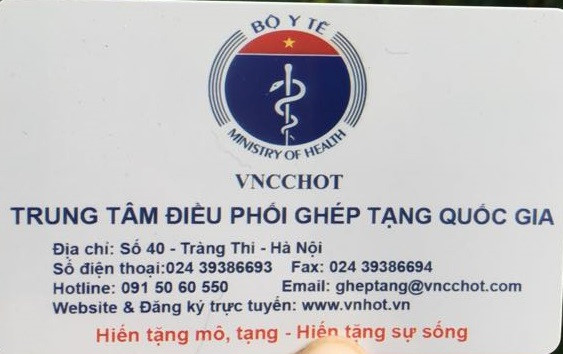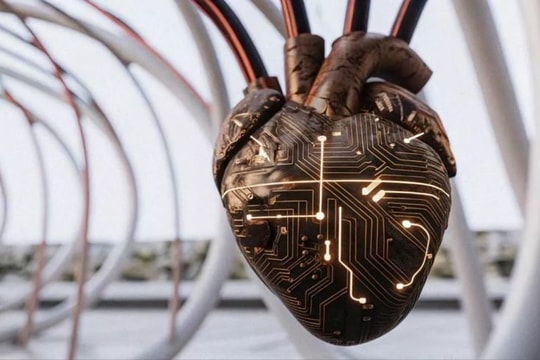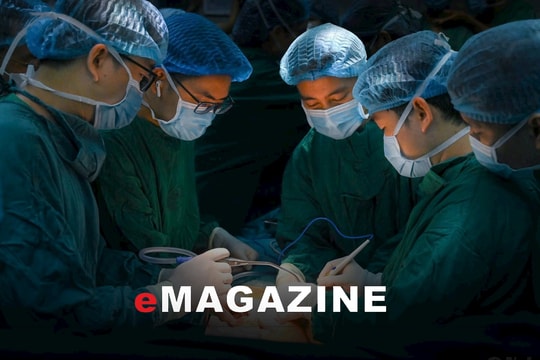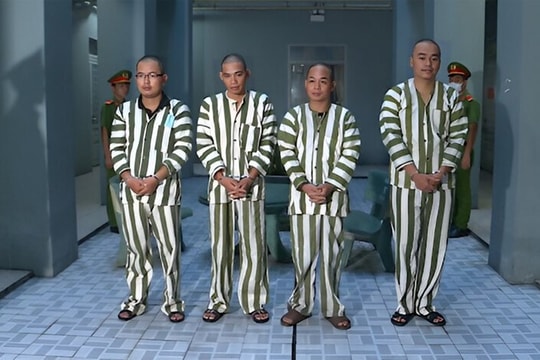Why do organ donors have to pay 17 million VND for testing?
In response to the news that organ donors must pay for testing costs themselves, a representative of the National Coordination Center for Human Organ Transplantation, Ministry of Health, has spoken out.
Organ donation is a humanitarian act that helps save the lives of tens of thousands of patients in need of organ transplants. The story of little Hai An donating her cornea after her death has created a huge ripple effect, causing the number of people registering to donate organs to increase dramatically.
However, the story of a woman donating a kidney to her granddaughter but having to pay 17 million VND for testing procedures makes many people afraid because donating voluntarily still has to pay a fee.
Not everyone who donates organs has to pay for testing.Regarding this issue, Mr. Nguyen Hoang Phuc, Deputy Director of the National Coordination Center for Human Organ Transplantation, Ministry of Health, affirmed that many people are mistaken that registering to donate organs will cost money and all organ donors will have to pay for testing.
Mr. Phuc pointed out that according to the Constitutional Law, taking and transplanting human tissues and organs and donating and taking corpses have two subjects with corresponding rights:
- Living organ donors:Will receive free health care and rehabilitation and free periodic health check-ups after donation, be given a free health insurance card, be given priority for tissue and organ transplants when indicated, and be awarded the Medal for People's Health.
Living organ donors are also supported with room rental fees if they cannot leave during the day; are supported with food and travel expenses for periodic health check-ups... Those with health insurance cards who register to donate organs will have health insurance pay for some basic tests such as blood type, urine test or X-ray...
- Organ donors after death, brain death, body donation:Will be posthumously awarded the Medal for People's Health, have a funeral and burial regime...
For brain-dead organ donors, all testing procedures to determine whether they can be transplanted to other patients are completely paid for by the hospital, and the donor's family does not have to pay any fees. Even the initial medical examination and treatment costs of the organ donor are supported by the hospital.
For living organ donors, the main source of organs is currently blood relatives and family arrangements.
"In addition to organ donations from the same bloodline, there are only a few cases of anonymous, non-profit organ donations, but the Law on Human Tissue Donation and Health Insurance Law do not mention the issue of testing costs, so hospitals do not have a basis for payment," Mr. Phuc explained about the fact that people have to pay for testing themselves when donating organs to their relatives.
Thus, the number of living donors is not much and most of them are families donating to each other. "In cases of donation to family members, this is not a big problem. In cases of donation to outsiders, we have also had many debates about who will pay for the tests before donation because we also see some shortcomings," Mr. Phuc added.
|
| After registering to donate organs, each person will be given an organ donor card. Photo:HQ. |
According to the Deputy Director of the National Coordination Center for Human Organ Transplantation, Ministry of Health, the health sector mainly encourages organ donation in brain-dead patients - except in some special cases of anonymous, non-profit donors who receive organs from living donors.
"If the testing is free, there may be people with impure motives, such as registering to donate for a free health check and then not donating. This will increase the budget terribly. Because the cost can be up to 15-20 million VND for blood type tests, human leukocyte antigen (HLA), X-rays, ultrasounds, CT scans, etc.
A living kidney donor must have a CT scan and image of both kidneys to keep the better kidney for the donor... But health insurance has not yet paid for this list, and hospitals do not have enough finances to pay," Mr. Phuc analyzed the shortcomings.
He also admitted that after 12 years of operation, the Law on Donation, Removal and Transplantation of Human Tissues and Organs and on Donation and Removal of Cadavers, in addition to creating an important legal corridor, also has shortcomings that need to be amended and supplemented, including those related to the health insurance regime.
Currently, the Law does not stipulate payment for all types of tests related to living organ donors and organ and tissue transplant recipients with health insurance cards, so patients with health insurance cards are not paid in full.
"In previous discussions, we also argued that, to avoid policy exploitation, health insurance should refund the testing fee to living organ donors after receiving an organ donation certificate or confirmation from a medical facility that the person is not eligible to donate organs while alive.
However, some people also think that this would be "insensitive" to those who truly wish to donate anonymously and without profit to anyone, because this would still force them to pay a sum of money and then receive it back after donating. This is a problem that we really find "stuck". We also look forward to receiving diverse opinions to officially propose to the Health Insurance and relevant units," said Mr. Phuc.









